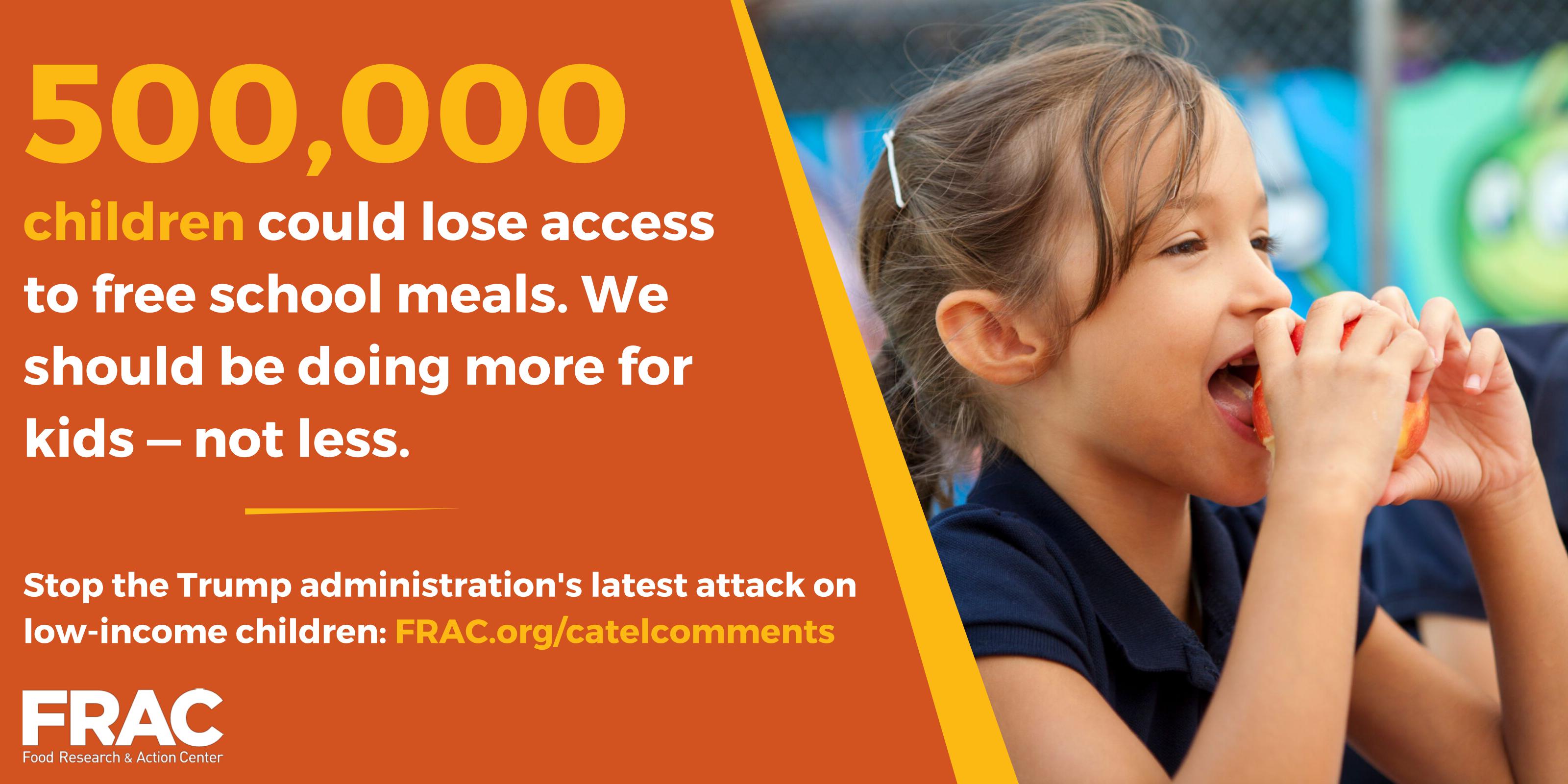August 14, 2019
By Randi Weingarten, American Federation of Teachers President
In the richest country in the world, in 2019, children are still going to bed at night hungry. They go to school unable to focus on learning because they’re distracted by their basic needs. We don’t lack for food in this country, but we lack the political will to provide for people who need it, and that’s shameful.
The statistics are appalling: About 15 million children in the United States — 21 percent of all children — live in families with incomes below the federal poverty threshold, who struggle to afford basic necessities and often have to choose between groceries, shelter, and medical care. Children bring the debilitating effects of poverty with them to school every day — when a child comes in from the cold with no jacket, or when no one is home at the end of the day because parents are working two and three jobs, or when kids are skipping meals or are shamed in the school cafeteria line and denied a nutritious lunch because their parents owe debt to cover the cost.

Educators and school support staff often fill in the gaps for kids, providing them food pantries and money from their own pocket, as well as the emotional support, care, and other resources they need. But we can’t do it all. The research is clear: Poverty hamstrings children, putting them at risk for a lifetime of being less prepared and at more risk for developmental delays and learning disabilities. And we know that any kind of nutritional deprivation, even if it’s episodic, affects a child’s cognitive and emotional development.
So, we should be doing more for our kids, not less. That’s why the Trump administration’s most recent effort to change the rules for the Supplemental Nutrition Assistance Program (SNAP) is wrong and cruel. It would gut broad-based categorical eligibility, which would take basic food assistance away from working families, seniors, and people with disabilities, and make it harder for struggling people to feed their families. That also would jeopardize 500,000 kids’ access to their free breakfast and lunch at school. In other words, President Trump is literally advocating that we take food out of the mouths of our children. Depriving poor kids of access to food is cruel and inhumane, and even the administration acknowledges this rule would worsen food insecurity.
SNAP goes a long way in helping people put food on the table, but it doesn’t solve everything. Of course, we must invest in community schools with wraparound services that take care of our kids and engage their families too, offering tutoring, afterschool programming, and school-based health clinics, and we must ensure kids have access to the things that make school fun and engaging, like music, art, sports, robotics, debate, and other extracurricular activities. This model is proven to help reduce the barriers to education that students living in poverty face every day. But addressing broader policy issues is also essential to creating an economy that works for everyone and that supports social safety net programs that make us a more democratic, just society.
Poverty doesn’t happen in a vacuum — and neither do its solutions — but SNAP and school meals can play a critical role in helping children grow up healthy, educated, and more likely to engage with their communities in meaningful ways. As this administration works to further divide, destabilize, and defund us, we must push back by submitting comments in opposition to this proposed rule, and keep fighting back even harder to protect our values and our children.
Submit a comment today to oppose the administration’s proposed SNAP rule!


